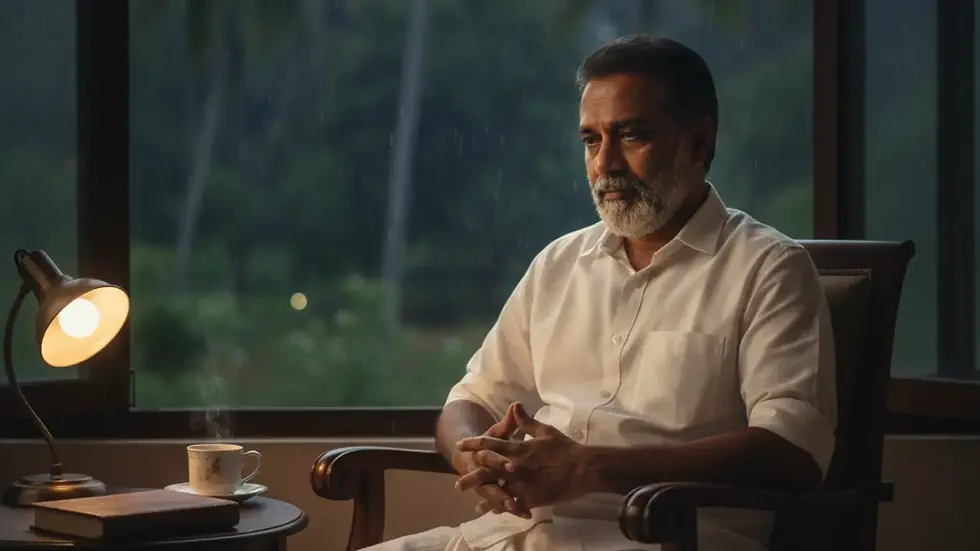Long term illness
- Karthika DR

- Aug 9, 2024
- 3 min read
Updated: Nov 8, 2024
Experience
In the village where Gouri lived, her sudden illness became a topic of concern and curiosity among the villagers. They observed her once-vibrant demeanor diminish as she battled with her health. Initially, they noticed subtle changes in her appearance and behavior – the exhaustion etched on her face, the way she winced when she moved, and the noticeable weight loss. As time went on, Gouri's symptoms became more pronounced, and the villagers couldn't help but notice her frequent trips to the bathroom, the visible discomfort she experienced in her joints, and the fatigue that seemed to overwhelm her. Pain and fatigue may become a frequent part of her day. It was evident that Gouri was struggling, but what truly struck the villagers was her resilience and determination in the face of adversity. Despite her challenges, Gouri continued to push forward, trying different treatments and therapies to manage her symptoms. Her unwavering spirit inspired those around her, teaching them valuable lessons about perseverance and the strength of the human spirit. The villagers rallied around Gouri, offering their support and solidarity as she navigated the complexities of her chronic illness. Through her journey, they learned the importance of empathy, compassion, and community in helping someone cope with the challenges of long-term health conditions.

Tips
Sometimes illness can change how we see the world and open up new experiences for us. Life isn't just about feeling happy or sad; it's about understanding our feelings while doing things that matter to us. Healing from an illness isn't something we do alone; we need the help and support of others. The choices we make when faced with challenges are important because they shape our journey. Even when we're in pain, there's still a purpose to our experiences, and with love and support, we can find it. Doctors who don't give us hope should think about how they can help us better. Illness can bring hidden challenges, but it also shows us how strong we are. Asking for help from others can make us feel stronger and more connected. Having an illness doesn't mean we have to suffer all the time; there are lessons to learn and insights to gain. Learning to say no to things that aren't important helps us focus on what really matters. Taking moments of quietness in our busy lives is important for our well-being. And sometimes, when everything feels too much, just taking a nap can make us feel better. Healing isn't just about fixing our bodies; it's about growing spiritually and finding peace, even if our bodies don't fully recover. Eating a healthy diet, staying active, avoiding negative habits like alcohol and substance abuse, practicing stress-relief activities like meditation, letting go of unnecessary obligations, asking for help when needed, and staying connected with family and friends are all important steps in managing chronic illness and improving our overall well-being.
Malayalee’s View
Physically, individuals dealing with long-term illnesses may appear fatigued or in discomfort due to their health condition. They might move more slowly or with greater difficulty, and their energy levels may fluctuate throughout the day. Some individuals may have visible symptoms of their illness, such as joint pain, mobility issues, or changes in appearance due to medication side effects
Emotionally, people coping with chronic illnesses may experience a range of feelings, including frustration, sadness, or anxiety about their health and future. However, they are also likely to feel supported and uplifted by the kindness and understanding of their neighbors. The sense of belonging and harmony within the community helps remove the feelings of isolation and loneliness that can often accompany long-term health challenges.
Neighbors may volunteer to help with household chores, provide transportation to medical appointments. Others may offer emotional support by simply lending a listening ear or offering words of encouragement. They recognize the daily struggles and the impact it can have on a person's quality of life. Instead of turning a blind eye or shying away from the topic, people openly acknowledge the difficulties faced by their fellow community members.
At Koott, we recognize how overwhelming it can be to cope with a long-term illness. Our dedicated Malayali psychologist provide online counseling to guide and support you every step of the way. Together, we’ll create a path to resilience and well-being. Reach out today—let’s take this journey toward healing together.







Comments